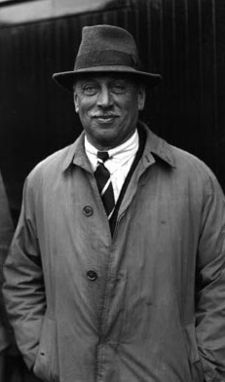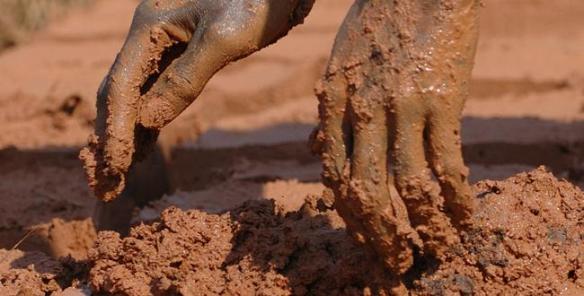
Clifford Hugh Douglas
“I am fairly confident that the persecution which was the lot of Christianity in its earliest years was by no means because it was concerned with something purely transcendental— something that we call the world to come. Taking the merely material implications in it, I have little doubt that what was recognised and persecuted in early Christianity was the economic implications of its philosophy. Only when Christianity became, as it did, purely transcendentalist, was it felt to be fairly respectable and fairly safe.” C.H. Douglas
"The work of heaven alone is material; the making of a material world. The work of hell is entirely spiritual."
Attributed to G.K. Chesterton
Chesterton: Distributism Posits The Need To Distribute Private Property Until Everyone Has Enough
Chesterton's Foundational Admiration For The French Revolution
In Chapter VI “The Enemies of Property," Chesterton says: “The French Revolution, therefore, is the type of all true revolutions, because its ideal is as old as the Old Adam, but its fulfilment almost as fresh, as miraculous, and as new as the New Jerusalem.”
Perhaps Chesterton's richest expression of admiration for The French Revolution (with the arguable exception of his admiration for Hillaire Belloc who championed The French Revolution as a central feature of his political philosophy) appears in the 5th chapter of "What's Wrong With The World": http://www.online-literature.com/chesterton/wrong-with-the-world/5/
Although the chapter is well worth reading, here is its distillation: "I have only space to allude to the two largest facts of modern history: the Catholic Church and that modern growth rooted in the French Revolution."
To borrow G.K.'s own phrase, it is "a fact as plain as potatoes" that Chesterton (who justifies violent revolution to keep designated authorities from cutting a young girl's hair -- http://www.online-literature.com/chesterton/wrong-with-the-world/46/) was, at his core, an ardent admirer of The French Revolution regardless the derivative monstrosities that occurred in "The Reign of Terror."
It is surpassingly strange that Christian conservatives have always been eager to deny, obscure and marginalize this Towering Fact about Chesterton: indeed, most summary accounts of Chesterton proclaim him "a conservative."
And yes, he was a conservative insofar as he championed all real truth handed down through "tradition."
But in politics he was staunchly anti-monarchical and, fundamentally, in favor of "Liberal Democracy."
And he believed in Incarnation because he realized that the conservative Christian urge to get back to the abstract Logos was not the direction of Deity itself.
"God so loved the world that he sent his only son into it."
It's not the other way around.
Most Christian "conservatives" want a fundamentally topsy-turvy theology that puts the cart before the horse.
Remember.
"God so loved the world..."
It is surpassingly strange that Christian conservatives have always been eager to deny, obscure and marginalize this Towering Fact about Chesterton: indeed, most summary accounts of Chesterton proclaim him "a conservative."
And yes, he was a conservative insofar as he championed all real truth handed down through "tradition."
But in politics he was staunchly anti-monarchical and, fundamentally, in favor of "Liberal Democracy."
And he believed in Incarnation because he realized that the conservative Christian urge to get back to the abstract Logos was not the direction of Deity itself.
"God so loved the world that he sent his only son into it."
It's not the other way around.
Most Christian "conservatives" want a fundamentally topsy-turvy theology that puts the cart before the horse.
Remember.
"God so loved the world..."
If You Don't Know The General Definition Of Liberal Democracy As A Historical Phenomenon, You're Too Ill-Infomred To Be A Responsible Citizen
https://paxonbothhouses.blogspot.com/2019/11/if-you-dont-know-general-definition-of.html
"Conservatism And Liberalism"
https://paxonbothhouses.blogspot.com/2019/10/conservatism-and-liberalism.html
Liberal Propaganda
(I love this!)
https://paxonbothhouses.blogspot.com/2019/11/liberal-propaganda-i-love-this.html Liberal Propaganda
(I love this!)
"Pax On Both Houses: Best G.K. Chesterton Posts"
http://paxonbothhouses.blogspot.com/2014/10/pax-on-both-houses-gk-chesterton-posts.html
I add one last quotation from Chesterton's seminal - indeed foundational -- work, "Orthodoxy": "I was brought up a Liberal, and have always believed in democracy, in the elementary liberal doctrine of a self-governing humanity. If any one finds the phrase vague or threadbare, I can only pause for a moment to explain that the principle of democracy, as I mean it, can be stated in two propositions. The first is this: that the things common to all men are more important than the things peculiar to any men. Ordinary things are more valuable than extraordinary things; nay, they are more extraordinary. Man is something more awful than men; something more strange. The sense of the miracle of humanity itself should be always more vivid to us than any marvels of power, intellect, art, or civilization. The mere man on two legs, as such, should be felt as something more heartbreaking than any music and more startling than any caricature. Death is more tragic even than death by starvation. Having a nose is more comic even than having a Norman nose.
This is the first principle of democracy: that the essential things in men are the things they hold in common, not the things they hold separately. And the second principle is merely this: that the political instinct or desire is one of these things which they hold in common. Falling in love is more poetical than dropping into poetry. The democratic contention is that government (helping to rule the tribe) is a thing like falling in love, and not a thing like dropping into poetry. It is not something analogous to playing the church organ, painting on vellum, discovering the North Pole (that insidious habit), looping the loop, being Astronomer Royal, and so on. For these things we do not wish a man to do at all unless he does them well. It is, on the contrary, a thing analogous to writing one's own love-letters or blowing one's own nose. These things we want a man to do for himself, even if he does them badly. I am not here arguing the truth of any of these conceptions; I know that some moderns are asking to have their wives chosen by scientists, and they may soon be asking, for all I know, to have their noses blown by nurses. I merely say that mankind does recognize these universal human functions, and that democracy classes government among them. In short, the democratic faith is this: that the most terribly important things must be left to ordinary men themselves--the mating of the sexes, the rearing of the young, the laws of the state. This is democracy; and in this I have always believed."

Spit, Mud, Miracle
I Used To Be A Big Fan Of Miracles
Televangelism And The Seductive Promise Of Miracles
"Since God Doesn't Heal Amputees, Humankind Will. The Future Of Christian Theology"
John Ford, John Wayne, Aquinas And Theosis (Christian Divinization)
Pierre Teilhard de Chardin SJ: "Research As Adoration"
Teilhard de Chardin, SJ
Aquinas, St. Symeon The New Theologian And Their Spiritual Kin

“God became man that man might become God"
Church Father, St. Athanasius
as 298-373
"Theosis, Service And The Future Of Christianity"
Needed: A New "Christian Science"
Needed: A New "Christian Science"
Compendium Of Pax Posts On Theosis, The Limits Of Religion And A New "Christian Science"
Compendium Of Pax Posts On Theosis, The Limits Of Religion And A New "Christian Science"

No comments:
Post a Comment